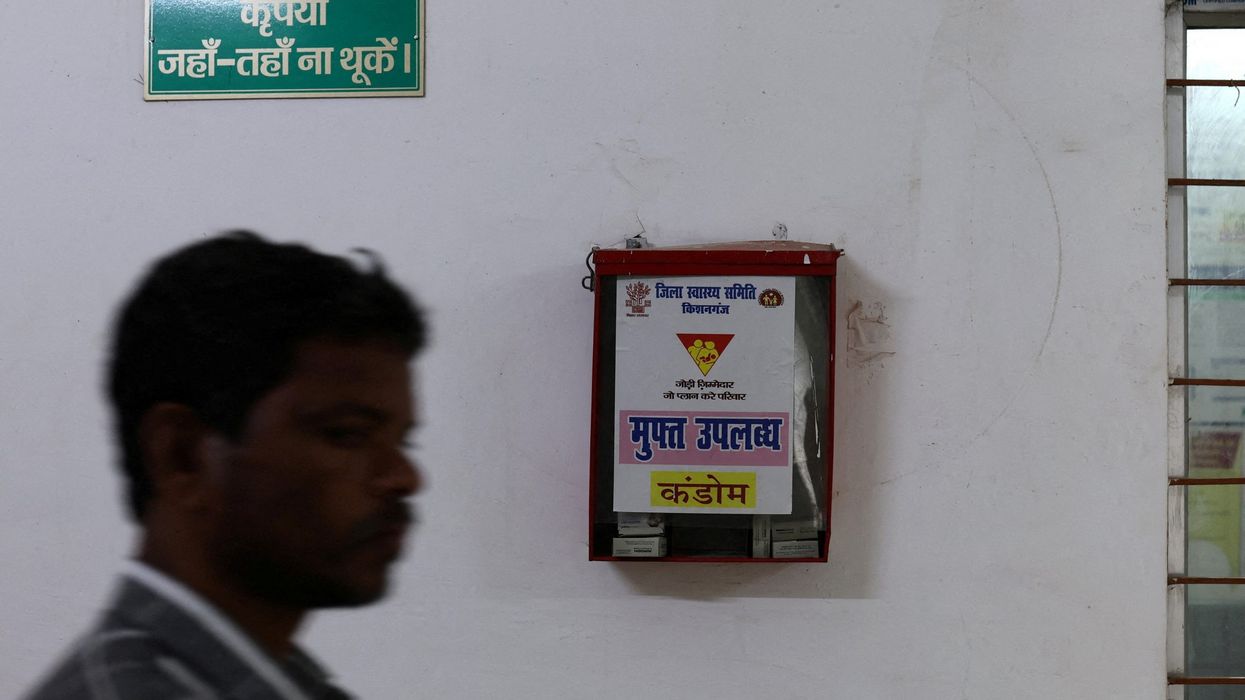GLOBAL contraceptive makers are betting on condom-shy India becoming their biggest growth market, following the blockbuster IPO of a domestic prophylactic maker just weeks after the UN said the country would become the most populous by mid-year.
With population decline and aging societies in major markets such as Europe, Japan and China, condom manufacturers are taking advantage of modern marketing tools to reach India's huge, young and tech-savvy demographic in both urban and rural settings.
Such is the trend that the market is set to more than double to $1.7 billion by 2030, showed data from GrandView Research.
"The Indian market is very attractive. The condom usage rate there is still low," said Kazuhiro Kamio, chief of overseas sales and marketing at Japanese condom maker Okamoto Industries. "If non-users can be educated on how to use them, given the population size, the volume would be tremendous."
Strong economic growth, willingness to pay for premium goods, social media use and evolving attitudes to sex are changing how condom makers view a country where talking about sex is largely taboo, condom ads are banned from prime-time TV and rural consumers are sceptical about contraceptives.
As few as 5 per cent of sexually active men use condoms as a regular form of contraception, and as many as 2 per cent were not familiar with condoms at all, showed a government survey conducted in 2020.
By contrast, 19 per cent of US men use condoms every time they have sex, showed data from the National Center for Health Statistics.
The Indian market has the potential to be the world's biggest, said Arvind Singhal, chairman at consultancy Technopak Advisors. "India does not just have the largest population base but also the largest demographic relevant for such products."
Condom makers would follow other global firms in chasing India's growth in disposable income. World Bank data showed that, in 2021, per capita gross domestic product crossed $2,000 - a threshold at which, in China in 2006, consumption jumped.
Moreover, India was set to overtake China this year to become the world's most populous country, the United Nations said in April. Almost one billion Indians are aged 15-64 years.
"We believe that with such a population and a very young population, India has a lot of opportunity," said chief executive Miah Kiat Goh at Malaysia's Karex, the world's largest condom maker.
Karex aims to partner local brands to fuel expansion whereas Okamoto, whose condoms are available in India online, wants to build brand awareness and put its products on store shelves.
Britain's Reckitt Benckiser Group has launched new products under its Durex brand and expanded its "Birds and the Bees" rural marketing campaign.
Church and Dwight, owner of top US brand Trojan, plans to officially enter India which it regards as one of the most lucrative markets, said a person familiar with the plans, declining to be identified as the matter was not yet public.
Church and Dwight did not respond to a request for comment.
India's market leader is domestic manufacturer Mankind Pharma with a 33 per cent share, ahead of Reckitt Benckiser at 14 per cent, TechSci data showed.
Mankind conducted a $520 million initial public offering (IPO) in May and saw its stock soar 32 per cent on its market debut, valuing the company at $7bn.
(Reuters)





